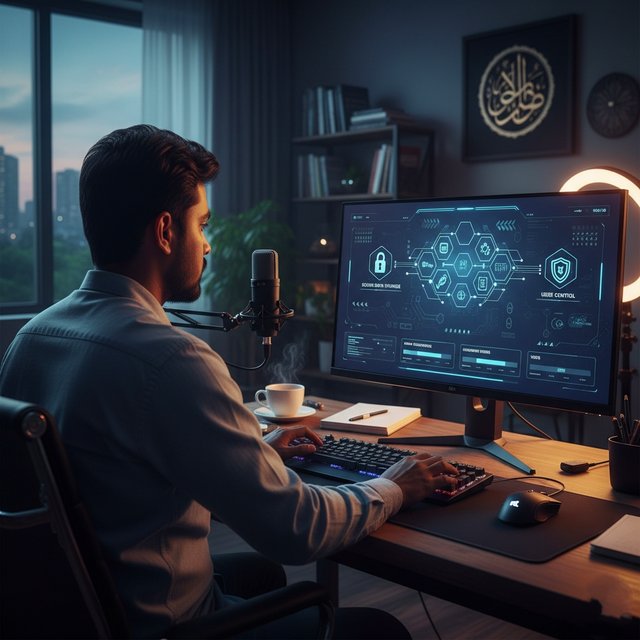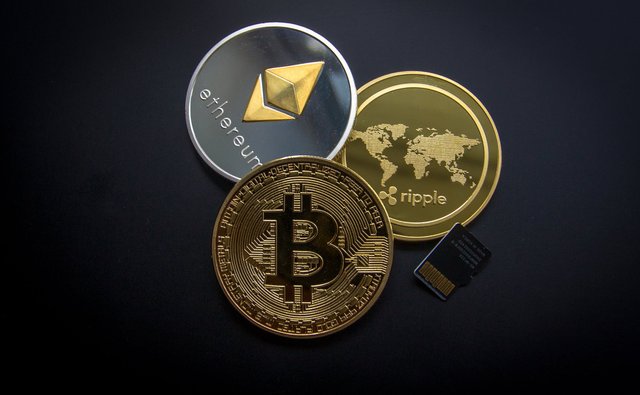Digital Identity
Assalamu Alaikum
The way we currently authenticate ourselves online is fraught with security risks and inconveniences. Remembering multiple passwords or repeatedly entering personal information across multiple platforms is a hassle. Blockchain technology has come up with a breakthrough solution to this problem: decentralized digital identity.
Password and data breach risks : Having to remember a different password for each online account is often difficult. Personal information, such as name, address, and email, can be easily stolen if a weak password or an organization’s database is hacked.
Problems with centralized control : All of your personal information is controlled by a single organization (such as Facebook, Google, or a government agency). If these central servers fail or make a mistake, control over your identity can be lost.
Disadvantages : You have to submit the same documents or credentials repeatedly when opening a bank account, using government services, or creating a new account online. This process is time-consuming and tedious.
Secure Data Storage : Using blockchain, your identity data is stored in an immutable digital ledger. This data is encrypted and only you can access it with a private key. Since there is no central server, the risk of hacking is significantly reduced.
User Control : In this system, you are the sole controller of your data. You can decide who to give what information to and for how long, without the permission of any third party. This is called self-controlled identity.
Selective Disclosure : You no longer have to submit a copy of your entire passport or license. Blockchain allows you to prove only the necessary part of your identity. For example, if an app requires you to prove your age, you can only share the information "I am over 18 years old," without sharing your date of birth or any other personal information.
Online transactions and services : Quickly verify identity while using any financial transaction or service online. This will make the KYC (Know Your Customer) process much faster and less costly.
Government services : The process of obtaining passport renewal, birth registration or other government benefits will become easier. Citizens will be free from submitting documents repeatedly by creating their digital identity once.
Voting : It is possible to introduce a blockchain-based voting system using secure digital identities, which can ensure fraud-free and transparent elections.
Physical access : In the future, physical ID cards will no longer be required to enter the workplace, airport or any other secure place. Blockchain-based digital identities will suffice.
Blockchain can usher in a new era in our digital lives, where our identity will not only be secure, but it will also be under our own control. Today's discussion concludes here. I hope you've found it interesting. Please share your thoughts on today's topic. Prayers for everyone. May everyone be well. Amen.


Twitter
You explained the topic of blockchain-based digital identity in a very simple and clear way. The “Selective Disclosure” part in particular seemed quite thoughtful.
https://x.com/BokhtiarMr90788/status/1975922722388545922?t=GEZ-IbPkPKMk_8j7tyrk0w&s=19
https://x.com/pussmemecoin/status/1975736558776164396?t=GEZ-IbPkPKMk_8j7tyrk0w&s=19
https://coinmarketcap.com/community/post/369294518
This is a great post of Digital Identity.
A very nice piece, Bokhtiar! ⭐ You have described the meaning of such a concept as digital identity and its relation to blockchain technology in a very clear and easy to comprehend manner. I also enjoyed the fact that you started by solving the simple issue of forgetting several passwords in your life, which makes the subject familiar to all people.
Of particular interest was your conversation on Self-Sovereign Identity (SSI) and Selective Disclosure. It provides a clear example of how online identity can be made more secure, private, and under control of the users because of blockchain. The idea became even more feasible by the examples you used in relation to the voting, government services, online transactions.
In general, this post is an excellent example of how blockchain can introduce more trust, security, and freedom in our online lives. Continue doing a good job of education! applaud!